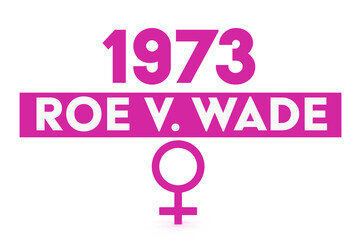Abortion is essential to women’s reproductive healthcare. Some conditions that make abortion necessary include the criminal or medical ills of rape, incest, intimate partner violence, illness or illegal drug use during pregnancy that affects the fetus, and life-threatening fetal abnormalities. Where abortion is illegal, women often resort to unsafe means to end unwanted pregnancies, including self-inflicted harm, self-medication with drugs, and using unqualified abortion providers.
Approximately 60% of Americans were outraged when the Supreme Court denied women their right to choose. They see the decision was based on personally held religious beliefs and political agendas. Justices Stephen Breyer, Sonia Sotomayor, and Elena Kagan warned the court’s decision would undermine the court’s legitimacy, a prediction we are experiencing now. Mary Ziegler, a University of California law professor, said, “A lot of people didn’t expect this to happen or didn’t even know this was going on, and now, people are waking up and finding they can’t do things they were planning to do.”
When the Supreme Court decision was released, the American College of Obstetricians and Gynecologists issued a statement saying abortion is essential health care, and more than 95% of Ob-Gyns agreed. Most Ob-Gyns did not provide abortions, so the procedure was performed at clinics, a longtime target of legislators who want to make abortions illegal.
Restricting abortion does not reduce the number of abortions; it increases unsafe procedures. Abortions are significantly safer in states with the least restrictive abortion laws. States with the most restrictive abortion laws have the lowest rate of safe abortions. Eight of the ten states with the highest maternal mortality rates have the most restrictive abortion laws.
The abortion death rate per 100,000 is 0.7, meaning less than one person in 100,000 die. The death rate for colonoscopy is 3; for childbirth, it is 9; and for medication abortions, it is 6.5 per MILLION! The “abortion pill” has a better safety record than Tylenol or penicillin.
Although abortions are incredibly safe, most politicians who write abortion bans claim they are saving women and the “unborn,” an oxymoron if I ever heard one. To catch the abortion ban wave, laws are written hastily and are notoriously open to interpretation. One tactic to make abortion difficult is outlawing certain medications and procedures used for abortions. The problem is some of these meds and procedures are used to treat other conditions.
When meds and procedures used for abortions are made illegal, all pregnant women’s health is endangered, even if they are not seeking an abortion. One in ten pregnancies end in a miscarriage where dead material from a non-viable fetus is usually, but not always, expelled. Unexpelled material can cause an infection that can be treated with antibiotics if discovered early. If not treated early, the infection can spread and cause life-threatening sepsis. Dr. Kim Puterbaugh, a Cleveland, Ohio obstetrician, said the rate of sepsis could climb because women who have had a miscarriage may be reluctant to seek medical care out of fear of being accused the “miscarriage” was self-induced, making it an abortion.
Anti-abortion lobbyists want to take mifepristone, the “abortion pill,” off the market to prevent some doctors from using it for “on-demand” abortions. However, mifepristone is also used to treat miscarriages and control high blood sugar in some people with type 2 diabetes. If mifepristone becomes illegal, women who miscarried or some who have type 2 diabetes will have to be treated with less effective procedures.
Increased access to birth control, health insurance, sexual education, and improved IUDs and contraceptives have contributed greatly to the decline in abortions. However, states that highly restrict abortions tend to rely on teaching abstinence-only and have the highest rate of unwanted pregnancies.
Pro-choice people know abortion is a simple and safe medical procedure that can be done at a healthcare facility or at home with medication. It also protects women’s lives and their right to make reproductive decisions.
Pro-life people see overturning Roe as our nation’s most significant human rights victory. They think abortion is murder because life begins at conception when the first cell is created, and ending even a one-cell life is murder. The difficulties women face by not being able to get an abortion do not justify murder. Abortion kills and offers women an expedient solution to a complex problem.
Pro-choice and pro-life people agree on one thing. On the national level, the battle to restore a woman’s constitutional right to choose or to prevent women from getting complete reproductive healthcare is far from over.
